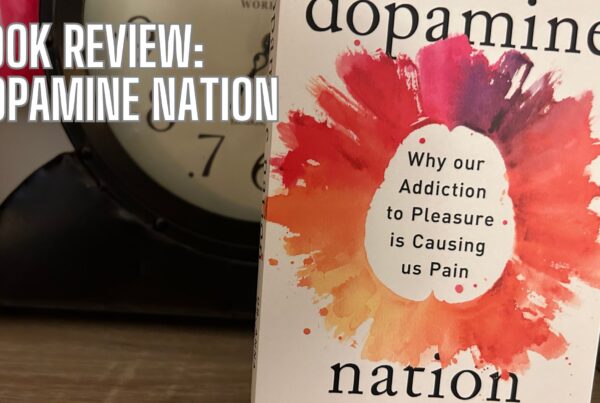The Key Components of Habit Formation: Unleashing Your Potential for Lasting Change
Understanding the Science of Habit Formation
Have you ever wondered why some habits stick while others fade away? The science behind habit formation provides valuable insights into how our behaviors become ingrained in our daily lives. In this article, we will explore the key components of habit formation based on the work of Charles Duhigg and James Clear, renowned experts in this field. By understanding these components, you can unlock your potential to create lasting positive changes and overcome challenges.
Cue: The Trigger that Sets the Wheel in Motion
Every habit begins with a cue, a trigger that initiates the behavior. The cue can be external (such as a specific time of day or a visual reminder) or internal (like an emotional state or a thought pattern). Research suggests that cues create a neural pathway in our brains, linking them to specific actions. For instance, the smell of coffee in the morning may act as a cue for someone to reach for a cup.
Studies show that identifying and understanding your cues is crucial for habit formation. By recognizing the triggers that lead to undesired behaviors or those that can reinforce positive habits, you gain a better understanding of how to manipulate your environment and mindset.
Routine: The Behavior that Defines Your Habits
Once the cue is activated, it sets the stage for the routine, the behavior that becomes the habit itself. The routine is where the action takes place, and it can be a simple or complex sequence of actions. Repetition is key here, as it reinforces the neural pathway associated with the habit.
Research has found that habits are formed through consistent practice. Neuroscientists have observed that repetitive behaviors activate the basal ganglia, a region in the brain responsible for habit formation. This reinforces the behavior and makes it more automatic over time. Remember, practice makes permanent!
Reward: The Pleasurable Outcome that Drives Habits
Rewards play a vital role in habit formation. They act as the reinforcement that strengthens the connection between the cue and the routine. When you experience a reward after performing a behavior, your brain releases dopamine, a neurotransmitter associated with pleasure and motivation.
Duhigg suggests that rewards can be intrinsic (internal satisfaction) or extrinsic (external rewards like treats or praise). The key is to find rewards that are personally meaningful and align with your values. By associating positive emotions with the habit, you create a positive feedback loop that motivates you to repeat the behavior.
Craving: The Desire for the Reward
Craving is the driving force behind habit formation. It is the intense desire or longing for the anticipated reward. Cravings create a powerful motivational state that pushes you to act upon the cue and engage in the routine. Without a strong craving, habits may struggle to form and maintain their hold on your behavior.
Clear suggests that linking a habit to your identity and values can amplify the craving. When a behavior aligns with your core beliefs or who you aspire to be, it becomes more meaningful and emotionally charged. For example, if you value health and well-being, craving the sense of vitality and energy that comes from regular exercise can strengthen your habit.
The Power of Keystone Habits and Habit Stacking
Certain habits have the power to influence other areas of your life, acting as “keystone habits.” These habits, when changed, can create a ripple effect, transforming multiple aspects of your behavior and lifestyle. For instance, regular exercise may lead to improved sleep, increased productivity, and reduced stress.
Additionally, Clear introduces the concept of habit stacking, which involves linking a new habit to an existing one. By using the cue of an established habit as a trigger, you can seamlessly integrate a new behavior into your routine. This technique capitalizes on the brain’s tendency to rely on existing neural pathways, making it easier to adopt and sustain new habits.
Understanding Habit Formation Allows You To Take Control
Understanding the key components of habit formation empowers you to take control of your behaviors and make lasting changes. By recognizing cues, designing routines, leveraging rewards, and cultivating cravings, you can shape your habits to align with your goals and values. Remember, habits are not formed overnight. Consistency and perseverance are essential for rewiring your brain and unlocking your true potential.
Release Hypnosis Melbourne Hypnotherapy
Since 2016, Lawrence Akers has been working under the name Release Hypnosis offering Hypnotherapy and ACT based work to the people of Melbourne or an online service. Based on St Kilda Rd, Release Hypnosis is an easy and convenient location to get to and accessible by the ANZAC station train and tram stop. Release Hypnosis can help with a wide range of presenting issues, and I offer a free 30 minute no obligation discovery call for those who are unsure if hypnotherapy is the right way forward for them.
References for “The Key Components of Habit Formation”
- Duhigg, C. (2012). The Power of Habit: Why We Do What We Do in Life and Business. Random House.
- Clear, J. (2018). Atomic Habits: An Easy & Proven Way to Build Good Habits & Break Bad Ones. Penguin Random House.
- Wood, W., & Rünger, D. (2016). Psychology of Habit. Annual Review of Psychology, 67, 289–314. doi: 10.1146/annurev-psych-122414-033417.
Purchase on Amazon.
Purchase on Amazon.
Book Your FREE 30 Minute Consultation With Release Hypnosis NOW!
You may also like to read:
Discovering Purpose and Values: A Path to Mental Well-being
Can’t Visualise in Hypnosis? Here’s What You Can Do Instead.
Dealing with Financial Stress and Crisis
What Is The Success Rate of Hypnosis?
Release Hypnosis Melbourne Hypnotherapy is accessible for people in: Abbotsford, Armadale, Albert Park, Balwyn, Bentleigh, Black Rock, Box Hill, Brighton, Brunswick, Bulleen, Bundoora, Camberwell, Canterbury, Carnegie, Caulfield, Chadstone, Cheltenham, Clayton, Coburg, Collingwood, Deer Park, Doncaster, Elsternwick, Eltham, Elwood, Epping, Essendon, Fairfield, Fitzroy, Footscray, Glen Iris, Glen Waverley, Glenhuntly, Greensborough, Hampton, Hawthorn, Heidelberg, Highet, Ivanhoe, Kew, Kooyong, Lalor, Laverton, Lower, Plenty, Macleod, Malvern, Middle Park, Moonee Ponds, Melbourne, Moorabbin, Mount Waverley, Murrumbeena, Northcote, Oakleigh, Ormond, Parkville, Pascoe Vale, Port Melbourne, Prahran, Preston, Richmond, Rosana, Sandringham, South Yarra, South Melbourne, Spotswood, St Albans, St Kilda, Surrey Hills, Templestowe, Thornbury, Toorak, Tullamarine, Williamstown, Yarraville, North Melbourne, Windsor, East Melbourne, Melbourne, Melbourne CBD, Melbourne 3004








